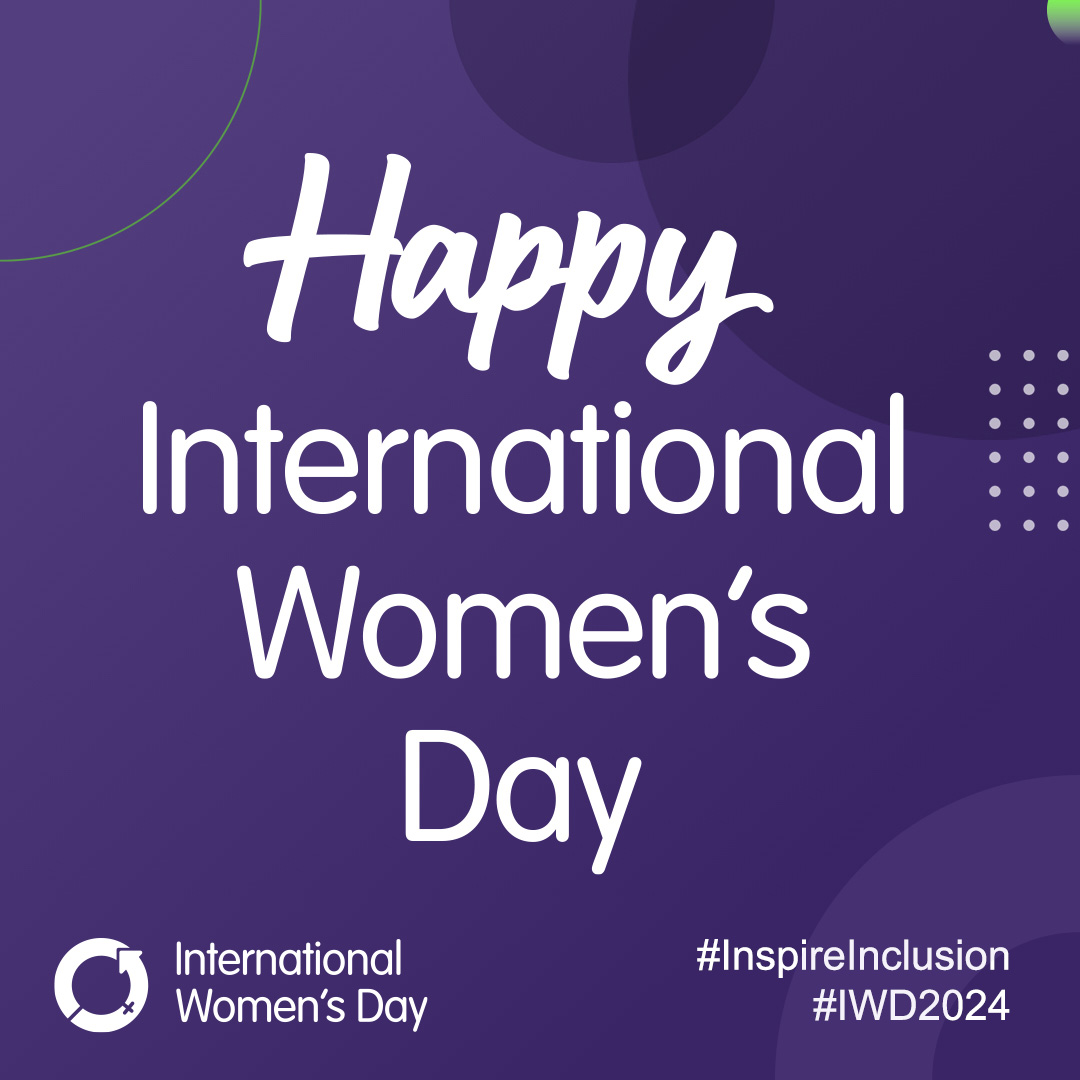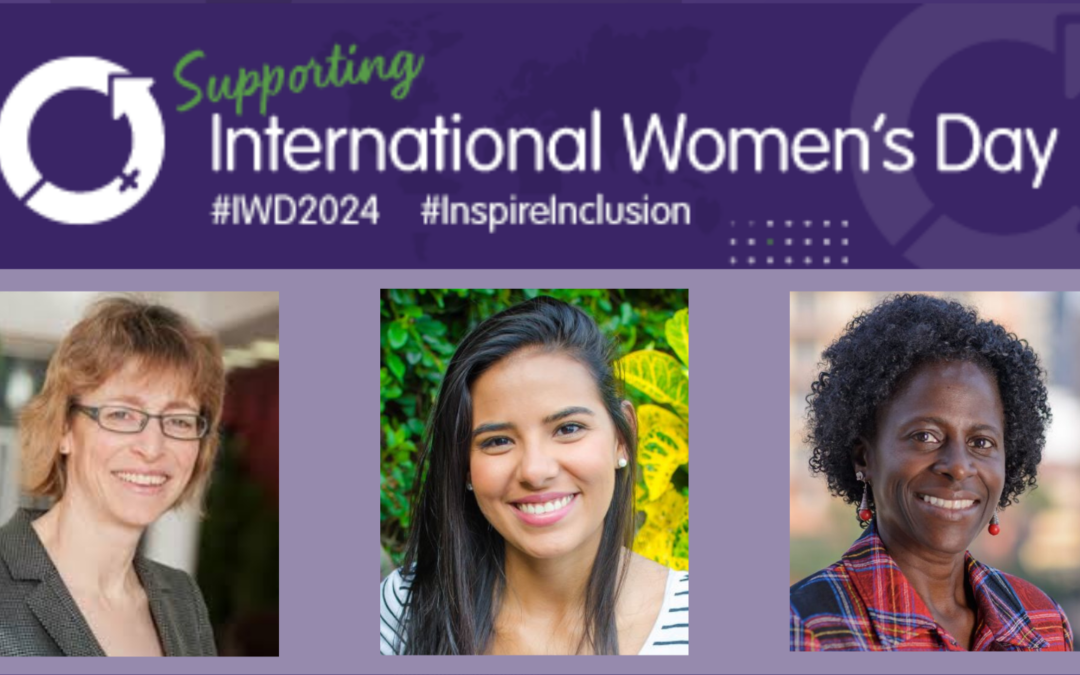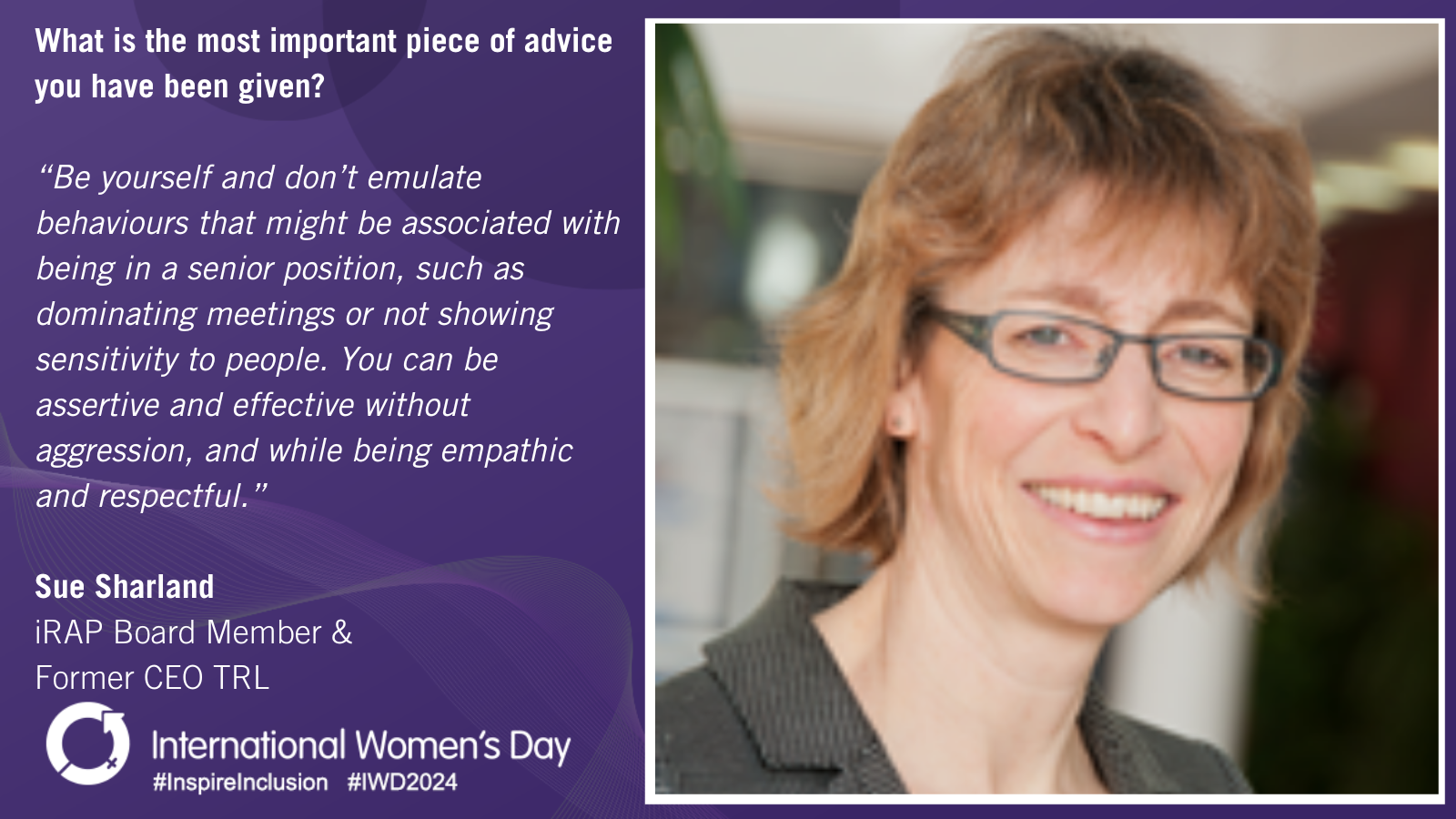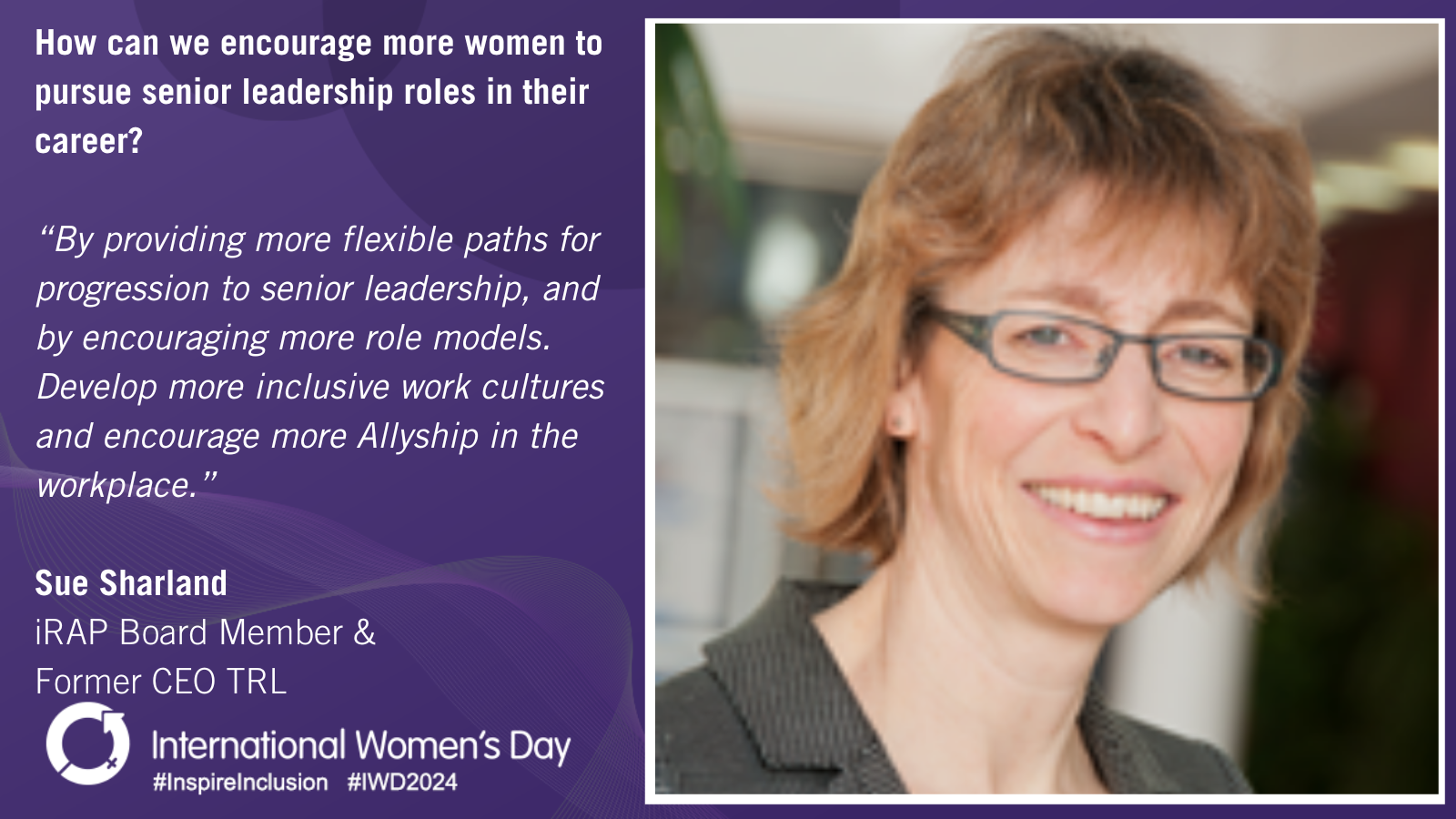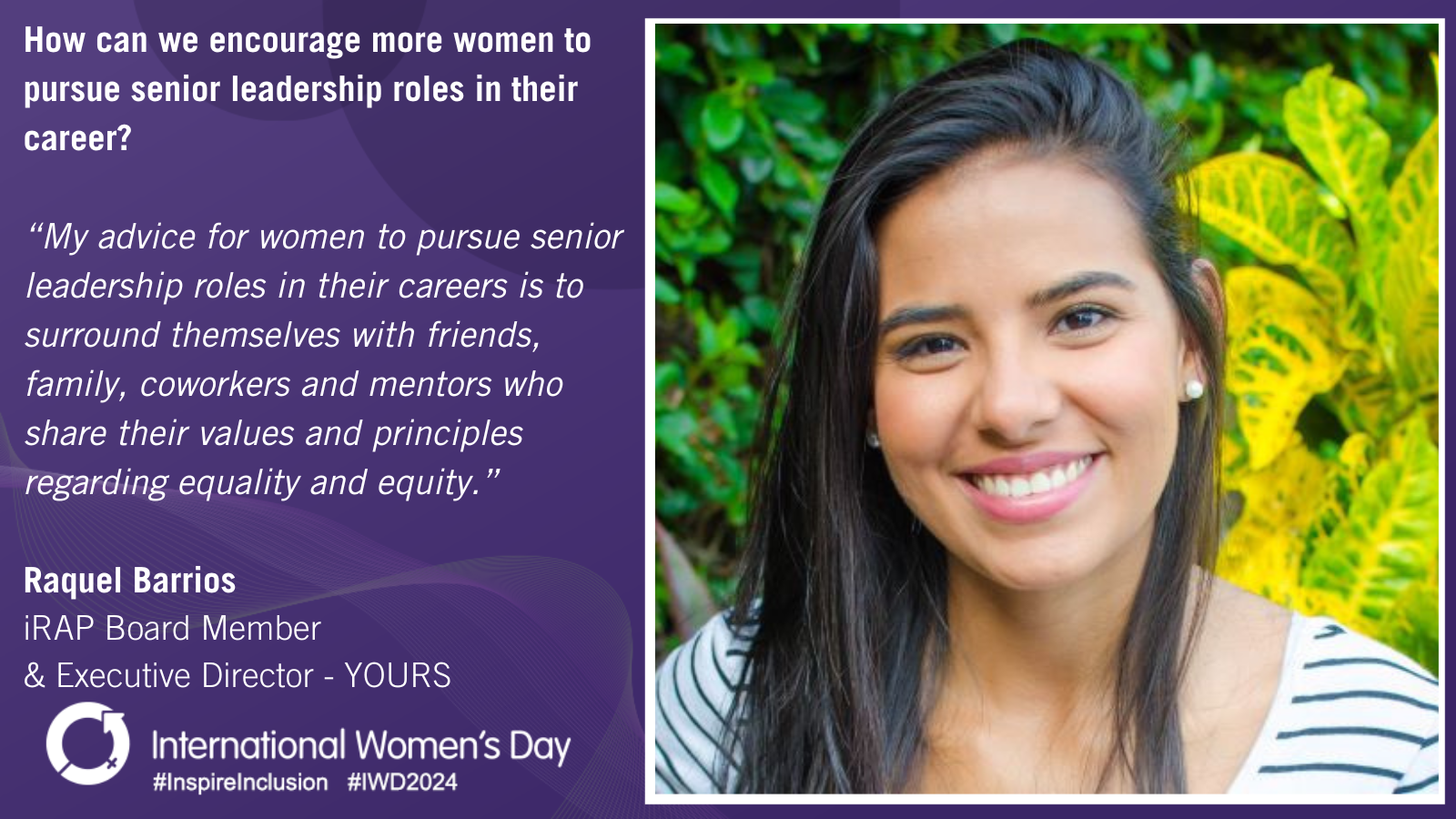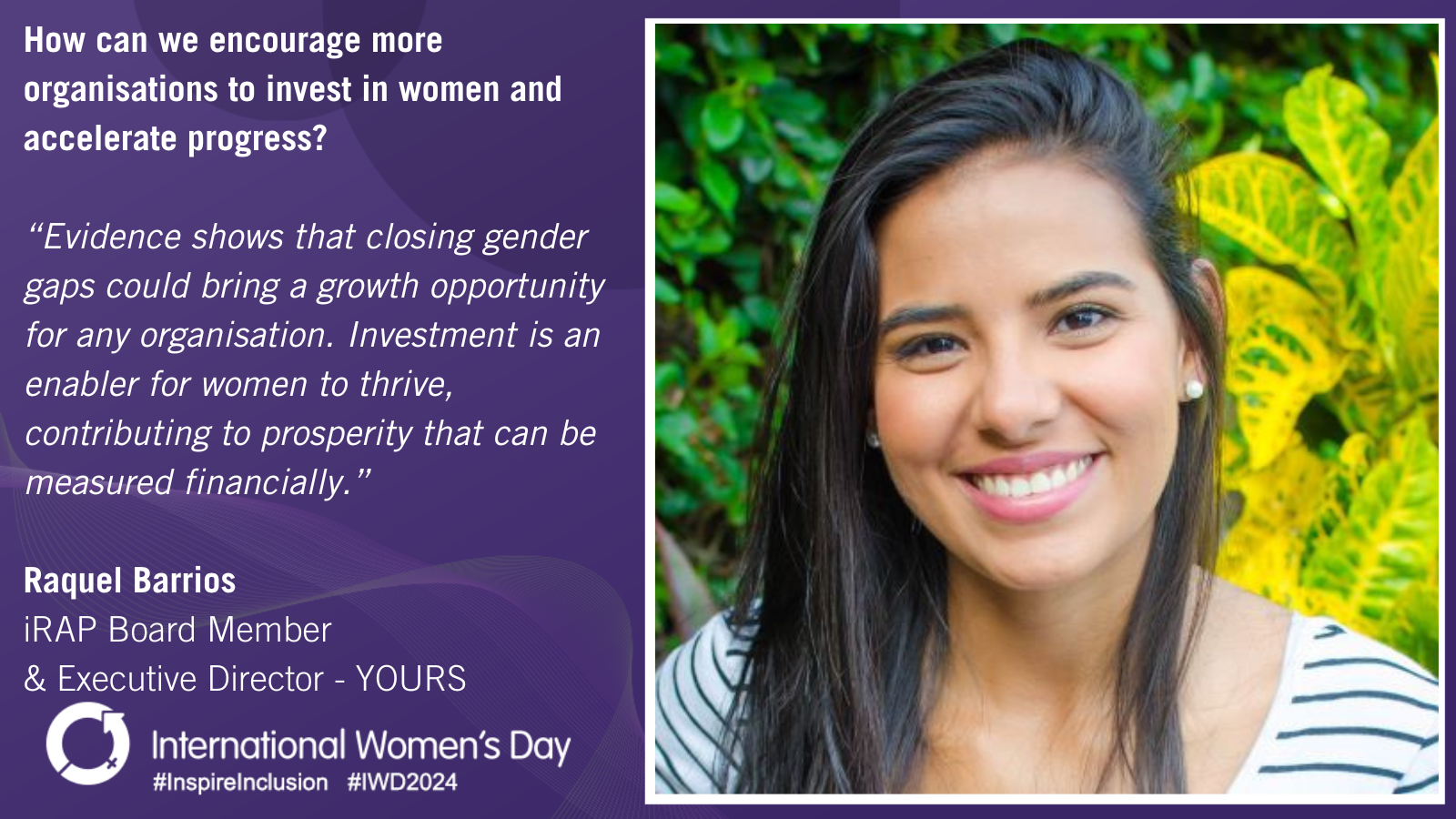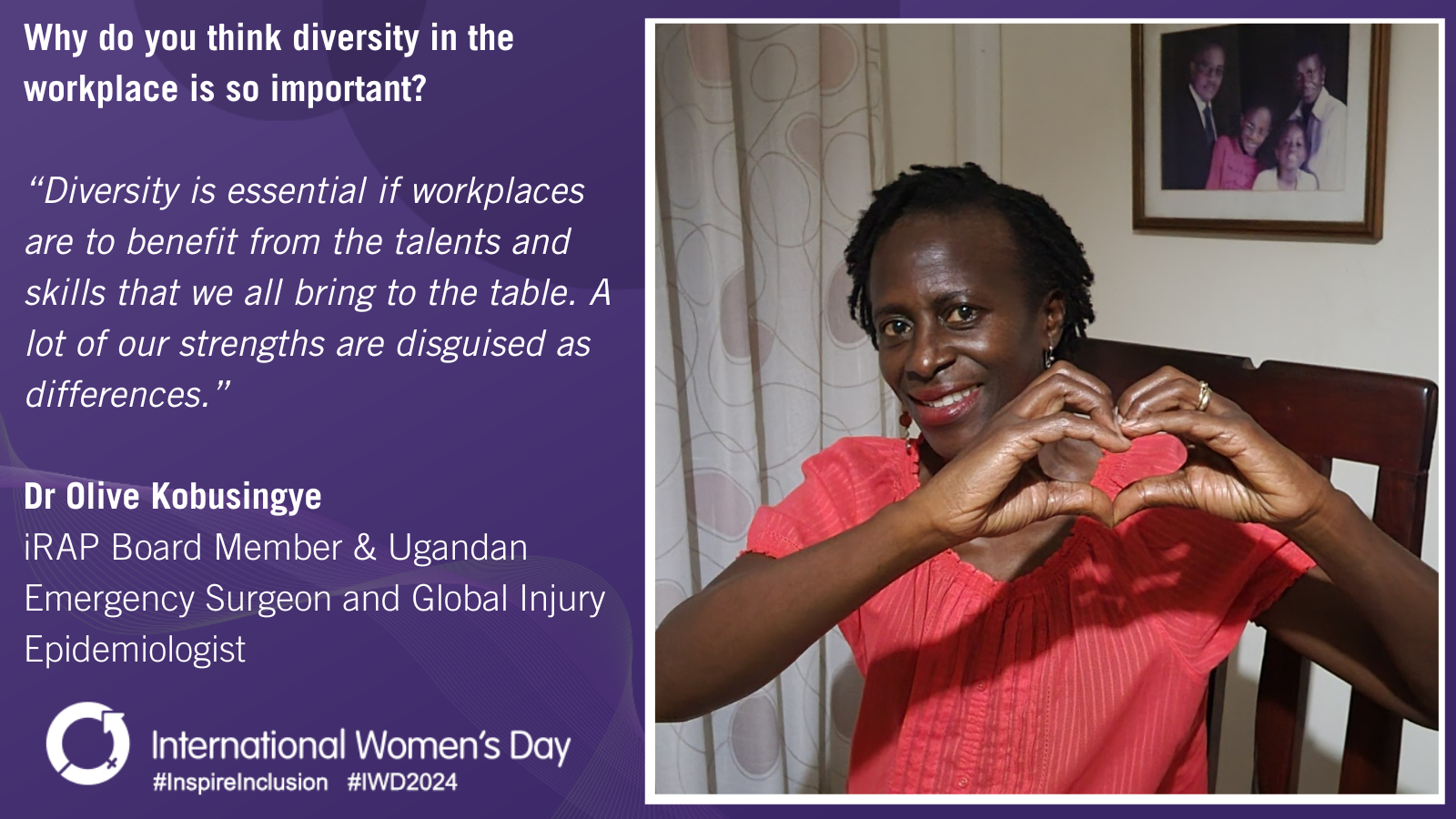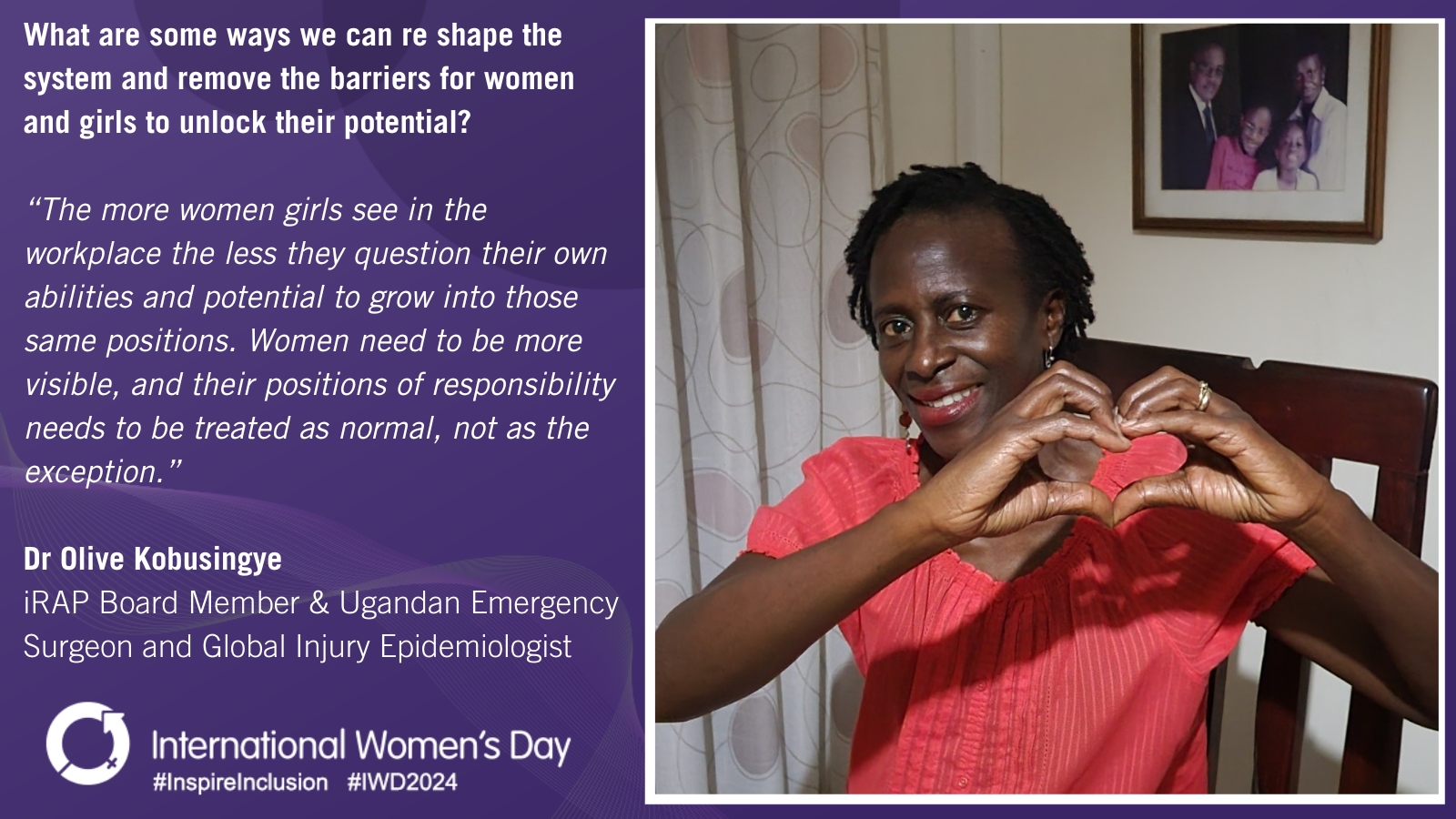This International Women’s Day, we applaud the incredible contributions of women who are making our roads safer for everyone.
The theme for International Women’s Day 2024, #InspireInclusion and #Countherin perfectly reflects the importance of gender inclusivity in road safety at all different levels. Women have unique perspectives and experiences when it comes to road use. They often make shorter trips, walk and cycle more frequently, and travel with children as passengers.
By incorporating these perspectives into road design, infrastructure planning, and policy decisions, we can create safer and more equitable transportation systems for all.
Women Leading the Charge
iRAP is proud to recognize the many women leading the charge in road safety around the world. From board members, engineers designing safer roads to policymakers advocating for better pedestrian infrastructure, women are playing a critical role in saving lives.
Here are just a few ways women are making a difference:
- Engineering Safer Roads: Female engineers are incorporating gender-based data into road design, ensuring features like sidewalks and pedestrian crossings cater to the needs of all users.
- Championing Pedestrian Safety: Women’s rights groups are advocating for improved pedestrian infrastructure, particularly in areas where women and children walk more frequently.
- Public Transport Advocacy: Women leaders are pushing for safe and reliable public transportation options, offering women greater mobility and reducing their reliance on potentially risky private vehicles.

Today we celebrate and put the spotlight on our iRAP Board members:
- Sue Sharland– Former CEO, TRL
- Raquel Barrios – Executive Director, Youth for Road Safety (YOURS)
- Dr Olive Kobusingye. Ugandan Emergency Surgeon and Global Injury Epidemiologist
We recently asked Sue, Raquel and Olive for insights into their experience and some advice for the future generations – here are their answers.
Sue Sharland– iRAP Board Member and Former CEO TRL
Click on the image to enlarge or click (+) read full interview underneath images.
Click here to read Sue's full response
What have been your barriers and how have you overcome them?
I have been lucky in my career throughout not to have encountered significant barriers. I have had supportive (all male) bosses who have encouraged me to grow professionally and progress my career.
What is the most important piece of advice you have been given?
Be yourself and don’t emulate behaviours that might be associated with being in a senior position, such as dominating meetings or not showing sensitivity to people. You can be assertive and effective without aggression, and while being empathic and respectful.
How can we encourage more women to pursue senior leadership roles in their career?
By providing more flexible paths for progression to senior leadership, and by encouraging more role models. Develop more inclusive work cultures and encourage more Allyship in the workplace.
How can we encourage more organisations to invest in women and accelerate progress?
Many of the organisations working in the transport industry in the UK are very focussed on this, as the industry is traditionally so male dominated. There are lots of great examples of programmes investing in women’s career progress.
How have you overcome gender stereotypes in the workplace or at a senior board level?
Have had some examples of lazy assumptions (largely unconscious bias) of my job role when introduced to new people- usually that as a senior executive I must be an HR professional. Key to overcoming this is to be visible and promote technical and senior managerial careers for females (and indeed all underrepresented groups).
Why do you think diversity in the workplace is so important?
Brings a richer set of experiences and perspectives to the work we do, and ultimately helps us do a better job for our stakeholders.
Raquel Barrios – Executive Director, Youth for Road Safety (YOURS)
Click on the image to enlarge or click (+) read full interview underneath images.
Click here to read Raquel's full response
What have been your barriers, and how have you overcome them?
I started my professional path in the non-profit sector at 22 years old, and only two years later, I was granted the opportunity to serve the organisation as Chief Executive Officer.
When I arrived to meet CEOs of large companies, they often asked me where my CEO was. Not immediately seen as a leader, it was a huge challenge to claim my place when society validates only a man with grey hair. To overcome that, I not only worked hard to prepare myself and to build my opinions based on what I saw on the ground but also to transmit different and fresh perspectives without my pulse trembling. Each time, successful or not, I focused on learning from the results and adapting. Through numbers and concrete actions, I demonstrated that experience is built along the way and that the key to being validated is doing, doing and doing…. not just talking.
What is the most important piece of advice you have been given?
As a woman in various leadership roles, I have found myself in situations where I am the only woman sitting at a table where decisions are made, and my colleagues are male leaders with a lot of experience and many opinions.
Occasionally, experiencing those situations has brought discomfort and has unleashed insecurities and other negative thoughts and emotions. Luckily, I have surrounded myself with mentors who truly believe in me and have guided my path and one great piece of advice I always have with me is that discomfort is a catalyst for growth.
Discomfort has forced me to adapt, be flexible, and trust my instincts as a female leader. It has also guided me toward accomplishment and embracing it has helped me grow personally and professionally.
How can we encourage more women to pursue senior leadership roles in their career?
My advice for women to pursue senior leadership roles in their careers is to surround themselves with friends, family, coworkers and mentors who share their values and principles regarding equality and equity.
It is not easy to let people and opportunities go when there is a financial or professional need. Still, women must be courageous and determined enough to stay only in workspaces that genuinely understand, promote and take concrete action on gender parity and women’s rights. The system in itself is the fundamental basis for ensuring women have equal opportunities to pursue those leadership roles. Then, assertiveness, knowledge and instinct will help women thrive and guide them in the right direction to contribute to progress through leadership.
How can we encourage more organisations to invest in women and accelerate progress?
Evidence shows that closing gender gaps could bring a growth opportunity for any organisation. Investment is an enabler for women to thrive, contributing to prosperity that can be measured financially.
The motivation for more organisations to invest in women should be growth, but most importantly, human rights. Recognising current women’s disparities and understanding the opportunity to create transformative solutions to the world’s most pressing issues is the first step towards accelerating progress.
Organisations should pay special attention to their internal operating guidelines regarding equal access to job opportunities, leadership and decision-making positions, financial resource allocation and a safe working environment for women. That is just the tip of the iceberg but if it is in place, and it is genuinely part of the core values of the organisation, then that is a great initial move to contribute to building inclusive and fair societies that would organically bring progress.
Dr Olive Kobusingye. Ugandan Emergency Surgeon and Global Injury Epidemiologist
Click on the image to enlarge or click (+) read full interview underneath images.
Click here to read Olive's full response
How can we encourage more women to pursue senior leadership roles in their career?
We need to acknowledge that good or great leadership does not require one to give up their lives – especially their families – for the job. Many women are made to feel that they have to make a choice – either they are going to settle for a plateauing of their careers so that they can have a full family life, or they have to sacrifice their families to let their careers soar. This might be the harsh reality in a few workplaces, but in most places great leadership and scholarship can coexist with a full family life. And if it cannot, the burden should fall on men and women equally.
How have you overcome gender stereotypes in the workplace or at a senior board level?
When I enrolled into the surgical training program, our cohort had three men and two women. My fellow woman quit after one month because she quickly realized that the program was unsuitable for those who hoped to combine work, study, and family, especially the study of surgery. The workload and work hours were punishing, even for those without young kids, and she was a young mother. Throughout the training I did my best to be as good as, or even better than my male counterparts, because I felt that I was being watched for signs of laxity. The expectation that the surgical discipline was better suited for men was always in my face. Even after I completed my training and became a surgeon, quite often I was addressed as a nurse, or at best a junior doctor, and assistant to whichever male doctor I happened to be working with at the time.
I realized that most of this was a reflection of the people’s ignorance, and decided not to take it personally.
But I also determined that I was going to be very good at what I did, in order not to give credence to these prejudices. Whatever I did, I gave it my best. Over time I gained the trust of my colleagues and patients. Because I drew confidence from using every opportunity to better myself, and to be a positive representation of female surgeons, I started to get recognition. This helped me to overcome the gender stereotypes in my workplace. I think that over time, at least in Uganda, people now realise that female surgeons are as good as male surgeons, and that sometimes they are even better.
Why do you think diversity in the workplace is so important?
Diversity is essential if workplaces are to benefit from the talents and skills that we all bring to the table. A lot of our strengths are disguised as differences. A workforce that is uniform will excel is certain aspects, but it will be lacking in those areas which exist in people that are different. A lot of great attributes are invisible – empathy, resilience, compassion, the ability to multitask. And women tend to be richly endowed with some of these. A workplace that either intentionally or inadvertently excludes women is going to miss out on some of these. This may be true in all sectors and disciplines, but it is perhaps most glaring in healthcare.
This year’s theme is “Count her in: Invest in Women. Accelerate Progress” – What are some ways we can re shape the system and remove the barriers for women and girls to unlock their potential?
The more women girls see in the workplace the less they question their own abilities and potential to grow into those same positions. Women need to be more visible, and their presence in positions of responsibility needs to be treated as normal, not as the exception. I like to be identified, not as a female surgeon, but as a surgeon, period.
The Road Ahead
While we celebrate the progress made, there’s still a long way to go. We need to encourage more women to pursue careers in road safety engineering, planning, and research. Additionally, ensuring women have a seat at the decision-making table is crucial for creating truly inclusive and equitable transportation systems.
On International Women’s Day, iRAP pledges to continue its work alongside all genders to achieve the ambitious goals of the UN Decade of Action for Road Safety: halving the number of global deaths and injuries from road traffic accidents by 2030.
#IWD2024 #InspireInclusion #CountHerIn
Together, we can build a future where everyone feels safe and empowered on the roads.
